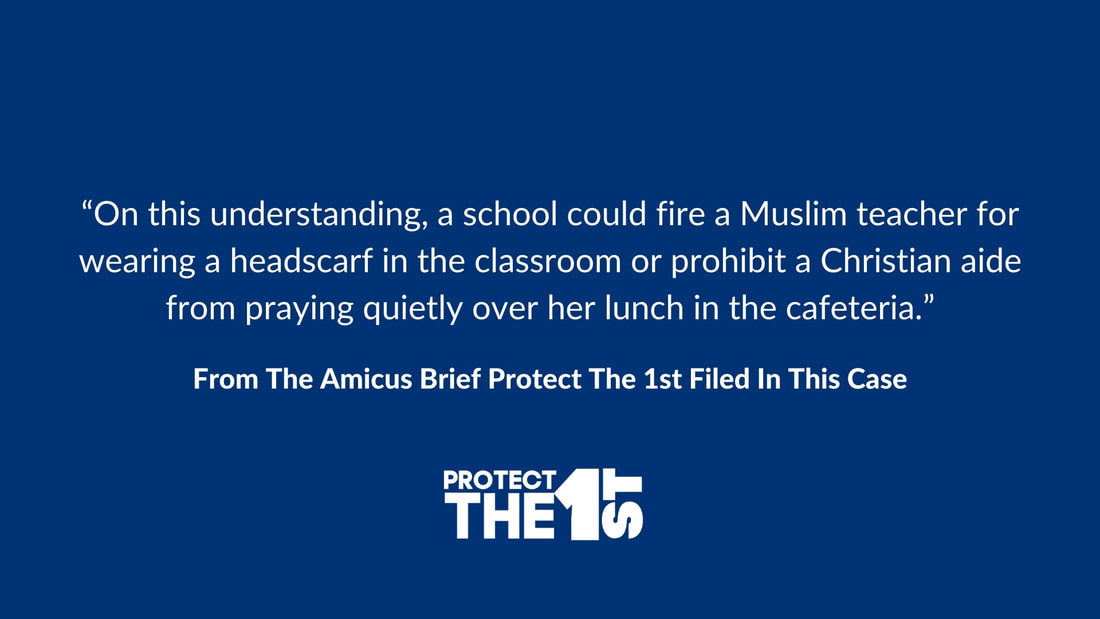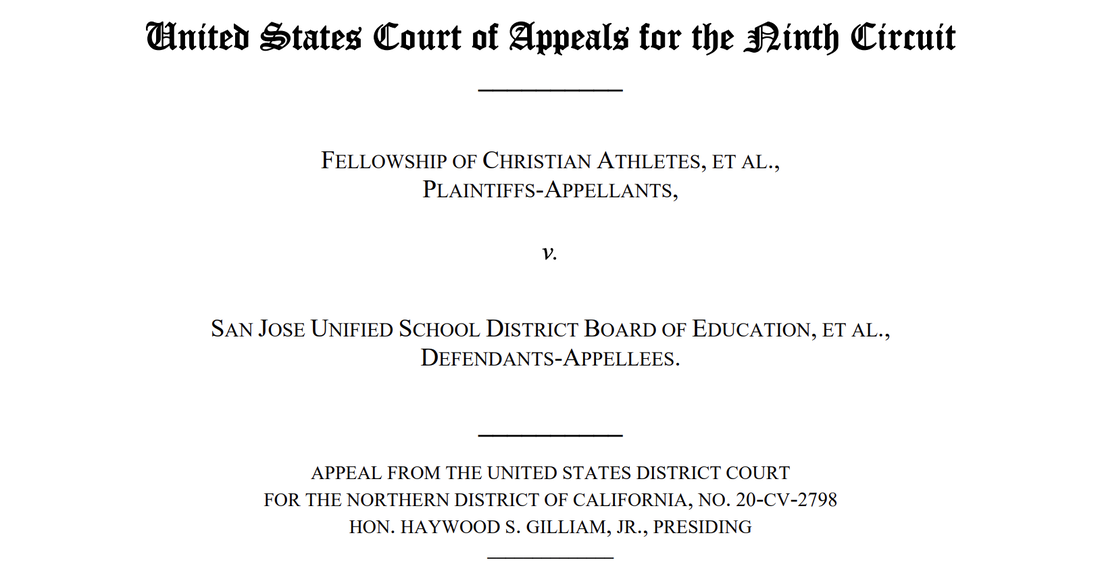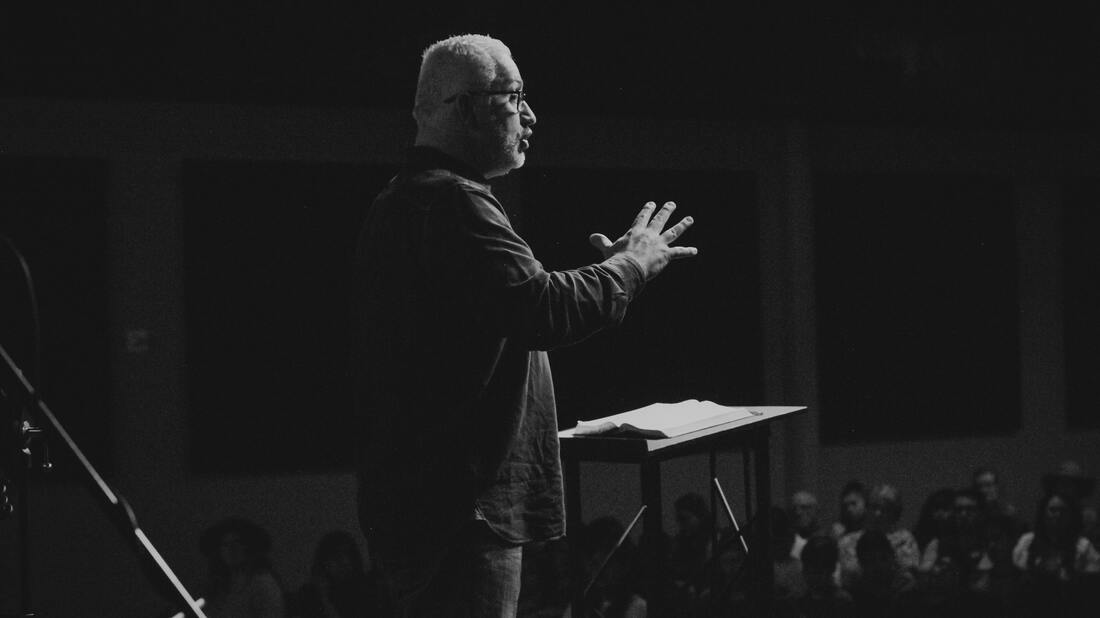|
Protect The 1st congratulates Justice Ketanji Brown Jackson on her swearing in. Now that she is on the nation’s highest court, Justice Jackson will be able to employ her well-honed jurisprudence to set strong precedents. We are hopeful Justice Jackson will use her authority to vigorously defend all the enumerated rights of the First Amendment.
Kennedy v. Bremerton School District The Supreme Court’s 6-3 majority opinion in favor of the right of Bremerton High School football coach Joseph Kennedy to pray after games on the 50-yard line is big win for religious liberty.
The issue is important because it involves how public institutions should manage the balance between the First Amendment’s guarantees of the free exercise of religion and speech against its prohibition of the establishment of religion. For decades, under the Lemon test, religious expression had come to be treated as radioactive material to be handled with an iron apron and tongs. The majority opinion states: “Both the Free Exercise and Free Speech Clauses of the First Amendment protect expressions like Mr. Kennedy’s. Nor does a proper understanding of the Amendment’s Establishment Clause require the government to single out private religious speech for special disfavor. The Constitution and the best of our traditions counsel mutual respect and tolerance, not censorship and suppression, for religious and nonreligious views alike.” The majority rejected the idea that the prayer constituted government speech merely because Coach Kennedy was a government employee. “When Mr. Kennedy uttered the three prayers that resulted in his suspension, he was not engaged in speech ‘ordinarily within the scope’ of his duties as a coach … He did not speak pursuant to government policy. He was not seeking to convey a government-created message. He was not instructing players, discussing strategy, encouraging better on-field performance, or engaged in any other speech the District paid him to produce as a coach.” This logic led the Court to adopt a view that is almost a verbatim quote from the amicus brief Protect The 1st filed in this case. The court ruled that if the standard sought by the school district held, then: “On this understanding, a school could fire a Muslim teacher for wearing a headscarf in the classroom or prohibit a Christian aide from praying quietly over her lunch in the cafeteria.” Quoting the First Amendment – “Congress shall make no law respecting an establishment of religion, or prohibiting the free exercise thereof; or abridging the freedom of speech” – the majority opinion concluded: “A natural reading of that sentence would seem to suggest the Clauses have ‘complementary’ purposes, not warring ones where one Clause is always sure to prevail.” Protect The 1st applauds the Court for standing up to protect private speech and the free exercise of religion. The U.S. Supreme Court, in a 6-3 decision today, upheld the right of parents who wish to send their children to religious schools to enjoy the same access to state-sponsored tuition assistance programs as parents sending their children to secular schools.
The majority opinion in Carson v. Makin followed the reasoning that appeared in an amicus brief filed by the Protect The First Foundation – that the First Amendment’s Free-Exercise Clause requires governments to respect the liberty of parents to make the best choice to educate their children consistent with their faith. The case arose from the refusal by the State of Maine to allow parents who qualify for tuition assistance programs to use their funds to send their children to religious schools that dare to impart religious teachings and have religious activities. Maine insisted on this standard even though these schools met all state education certification standards. Maine defended its position by claiming it did not discriminate against religious schools, only schools with “sectarian” religious teachings and practices. The Court saw through Maine’s illogical standard – that a school could be Catholic in name but could not hold a Bible class or administer communion. The majority also agreed that Maine’s subsidy for attendance at religious schools would not violate the Establishment of Religion Clause. Rather, the offense to the Constitution was a state regulator in Augusta, Maine, reviewing schools’ curriculum and deciding if a school is sufficiently irreligious or too religious. Writing for the majority, Chief Justice John Roberts concluded: “Maine’s ‘nonsectarian’ requirement for its otherwise generally available tuition assistance payments violates the Free Exercise Clause of the First Amendment.” The majority opinion referred to two precedents in which similar principles were applied. In Trinity Lutheran Church of Columbia, Inc., v. Comer (2017), the Court struck down a Missouri program that excluded religious organizations from a grant for nonprofits that installed cushioning playground surfaces made from recycled rubber tires. More akin to Makin is Espinoza v. Montana Dep’t of Revenue (2020) concerning a state program that provided tax credits to donors who sponsored scholarships for private school tuition. In today’s opinion, the majority declared that the “unremarkable” principles of Trinity Lutheran and Espinoza mean that a state “need not subsidize private education. But once a State decides to do so, it cannot disqualify some private schools solely because they are religious.” With a solid win for religious liberty in Carson v. Makin, we can expect future cases will explore the freedom of publicly funded religious charter schools to include religious instruction. San Jose School District Disqualifies Fellowship of Christian Athletes, Approves Satanic Temple Club Established to Mock Their Christian Beliefs The Fellowship of Christian Athletes and the Becket legal team are vowing to appeal a ruling last week by Federal Judge Haywood Gilliam for upholding the cancellation of Fellowship of Christian Athletes clubs by the San Jose School District in California.
The cancellation began when a teacher at Pioneer High School in that district posted a statement on his classroom whiteboard objecting to the recognition of the Fellowship of Christian Athletes (FCA) as a school club. The FCA is open to all and asks its members to treat everyone “with love, dignity and respect.” It reserves its leadership posts for student athletes who lead the groups in prayer, worship, and religious instruction. They must adhere to its Statement of Faith, which upholds traditional Christian tenets such as the Holy Trinity and the Divinity of Christ. The FCA also holds a traditional view on marriage. The Pioneer High teacher in this case announced that FCA’s views are “bullshit” and should be barred from San Jose’s public high schools. Student reporters from the school newspaper and others are alleged to have disrupted an FCA meeting, snapping pictures in the faces of the FCA members. A Pioneer teacher in attendance told Espiritu that this was “intimidating” and left FCA students visibly “embarrassed, harassed and scared.” District officials responded by denying benefits to FCA clubs, called for on-campus protests for FCA and gave official recognition to a new student club – the Satanic Temple Club – formed with the specific and announced purpose of mocking FCA’s beliefs and Christianity. The banning of the Fellowship of Christian Athletes is the first and only time the district has ever “derecognized” a student club for asking its leaders to embrace the club’s views. Last week, Judge Haywood Gilliam of the Northern District of California held that the action of the San Jose School District did not preclude religious speech but rather prevented acts of discrimination. He refused to issue a preliminary injunction of the club’s banishment. Judge Gilliam recognized no contradiction in applying this standard to the FCA, while allowing other clubs – the Latino Male Mentor Group, the Girl’s Circle, and the National Honor Society – to set membership criteria by sex, GPA, and other standards. The Ninth Circuit should grant the request for a preliminary injunction because the district’s actions violate statute and the Constitution. First, the district ruling violates the Equal Access Act – a federal statute prohibiting school districts from derecognizing clubs “on the basis of the religious, political, philosophical, or other content of the[ir] speech.” Second, it violates the Free Exercise Clause of the First Amendment, banning an after-school group on the basis of its religion. And third, it violates the Free Speech Clause of the First Amendment, punishing a viewpoint on marriage held by millions of adherents of Christianity, Islam, and Judaism (and not, by the way, related to the purpose of this student forum, which is centered around Bible-reading and prayer). Becket is appealing Judge Gilliam’s refusal to set a preliminary injunction of the clubs’ cancellation to the Ninth Circuit Court of Appeals. If the Ninth Circuit does not act, the Fellowship of Christian Athletes faces another year or more of an ongoing violation of their First Amendment and statutory rights. In the wake of Georgetown Law’s Ilya Shapiro debacle, the whole university seems to be setting itself up for endless controversy, recrimination, and lawsuits over free speech. This is apparent in the Georgetown University’s Institutional Diversity, Equity & Affirmative Action (IDEAA) harassment report that spells out policies that now apply to all professors.
Kudos to Eugene Volokh for obtaining a copy of this policy and quoting from it. This policy on “harassment” and prohibited speech now extends to any speech that expresses views that sufficiently offend “reasonable” students “in the impacted individual’s position” based on their identity group membership. This policy prohibits offensive speech that relates not just to race or sex, but also to “age … disability, family responsibilities, gender identity and expression, genetic information, marital status, national origin and accent, personal appearance, political affiliation, pregnancy … religion … sexual orientation, source of income, veteran’s status or other factors prohibited by federal and/or District of Columbia law.” These prohibitions extend to the expression of views in op-eds, conferences, scholarship, television appearances and the like. Volokh raises many examples of language, some hypothetical and some real, that could run afoul of Georgetown’s speech code. One example: A Georgetown law professor opined that there is “only one political party in this country, the Democrats. The other group is a combination of a cult and an insurrection-supporting crime syndicate.” Under the standards enunciated by Georgetown, this would denigrate Republicans based on their “political affiliation” (which, Volokh notes, means party affiliation under D.C. law). Many Republicans would be offended by this statement. But should law professors be fired for personal venting on politics? Yet don’t be surprised that the next time a Georgetown professor sounds off on Republicans if some group, perhaps the Georgetown College Republicans, will find a lawyer willing to hoist that professor with his own petard. Volokh concludes: “The important thing here, I think, is just how much speech is now in peril, going forward, for Georgetown professors generally (especially the ones who lack tenure, but even the tenured ones.)” |
Archives
June 2024
Categories
All
|
ABOUT |
ISSUES |
TAKE ACTION |





 RSS Feed
RSS Feed